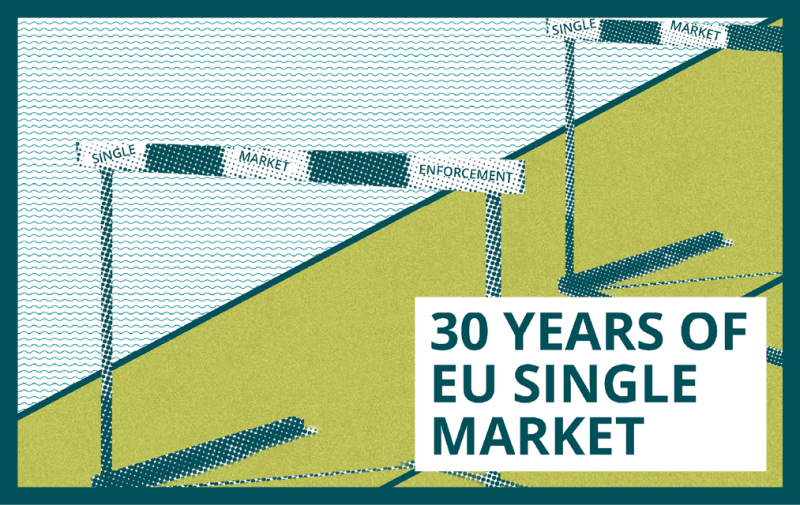Stay always informed
Interested in our articles? Get the latest information and analysis straight to your email. Sign up for our newsletter.

This year marks the 30th anniversary of the creation of the European Union's Single Market. Single Market legislation touches on almost every aspect of our daily lives, and it is hard to imagine life before an integrated European market. Yet most Europeans are unaware of its inner workings. Our new report exposes how corporate interests have used Single Market rules to obstruct progressive social and environmental policies and regulations that might harm their profits.
This report shows how companies, lobbyists and industry associations actively use enforcement mechanisms related to the Single Market to undermine progressive legislation at the national and municipal levels. These enforcement mechanisms offer ample opportunities for companies to persuade the Commission to investigate national legislation for potential breaches of EU law. The end result is the bogging down of the much-needed social and ecological transition in Europe.
For this report, we have gathered several cases that show how powerful companies and industry lobbies have attempted to prevent or roll back progressive legislation that might harm their profits. These cases include the obstruction of social housing measures, public healthcare initiatives and consumer protection legislation regarding harmful substances; they also involve restrictions on short-distance flights and gambling. In almost all cases, the business sector has either been able to push for further liberalisation, or to stop, delay or weaken progressive legislation. Another recent and worrying development is that the Commission has increasingly been shifting investigations into these matters into an informal, even less transparent sphere.
The cases we have collected represent only the tip of the iceberg. A recent inquiry by a member of the European Parliament revealed that the Commission receives on average about 400 business complaints each year. This report is the first to delve into the details of some of these inquiries and the damage they cause. However, a severe lack of transparency in the EU system prevents us from assessing the scale of the number of complaints that result in fullblown infringement procedures or the withdrawal of climate or social protection measures at an early, informal stage.
Our analysis clearly shows that the Single Market enforcement system is far from a paper tiger; the implications for people and the planet are enormous. If Europe is to protect public services and take the climate crisis seriously, it will need to turn its back on neoliberalism and take steps to modernise Single Market governance so that the national and local measures needed for a just ecological transition are safeguarded.
Today, unfortunately, the EU is headed in the opposite direction. Under the slogan of ‘completing the Single Market’, new proposals by the Commission and corporate lobby groups aim to push further than the existing (and already highly problematic) rules and to strengthen enforcement mechanisms. Our recommendations call for a recalibration of how Single Market rules apply to public services, climate protection measures and various other policy fields. To enable a democratic process and an open debate around a new approach, the Commission must start to proactively inform the public about the complaints and government measures that are currently under investigation.